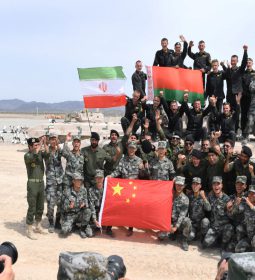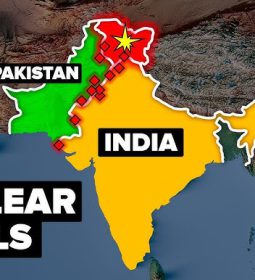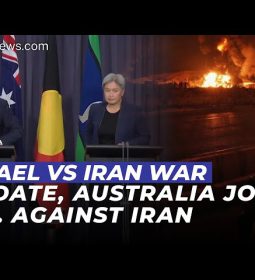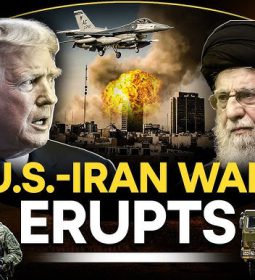New Delhi in Panic Mood: Does the New Saudi-Pakistan Alliance Signal a Challenge to US-India-Israel Bloc?


The evolving relationship between Saudi Arabia and Pakistan has recently garnered significant attention, prompting geopolitical analysts worldwide to scrutinize its potential implications. This burgeoning alliance is seen by many as a strategic maneuver that could subtly, or even overtly, challenge the established dynamics involving the United States, India, and Israel.
The Genesis of a Renewed Alliance
While Saudi Arabia and Pakistan have historically maintained strong bilateral ties rooted in shared Islamic heritage, economic cooperation, and defense collaboration, recent developments suggest a deeper, more coordinated strategic alignment. This renewed vigor in their relationship is driven by several factors:
- Economic Imperatives: Pakistan, facing ongoing economic challenges, looks to Saudi Arabia for investment, financial support, and energy security. Saudi Arabia, on the other hand, is diversifying its investments globally as part of its Vision 2030, and Pakistan’s strategic location and market potential are attractive.
- Regional Security Concerns: Both nations share concerns over regional stability, terrorism, and the shifting power balance in the Middle East and South Asia. Their collaboration often involves military exercises, intelligence sharing, and discussions on defense modernization.
- Changing Global Order: As the world moves towards a more multipolar order, nations are seeking to forge new alliances or strengthen existing ones to protect their interests and enhance their influence. This alliance could be seen in that context, allowing both countries to project greater diplomatic and strategic weight.

What Does This Mean for the US-India-Israel Axis?
The “US-India-Israel bloc” refers to a convergence of strategic interests, particularly concerning counter-terrorism, defense cooperation, and economic partnerships. This unofficial alliance has gained traction in recent years, largely driven by shared concerns over regional stability, particularly vis-à-vis China and Iran, and a commitment to democratic values (though Saudi Arabia is an autocratic monarchy, its relationship with the US and Israel has traditionally been strong).
The strengthened Saudi-Pakistan alliance could present several points of contention or realignment:
- Redefining Regional Influence: Saudi Arabia is a pivotal player in the Middle East, while Pakistan holds significant strategic importance in South Asia, bordering Iran, Afghanistan, and China. A consolidated Saudi-Pakistan front could create a powerful new axis that demands greater recognition in regional and international forums, potentially altering the balance of power that the US, India, and Israel have largely influenced.
- Impact on India’s Strategic Calculus: India has deep economic and strategic ties with Saudi Arabia, particularly in energy. At the same time, its relationship with Pakistan remains fraught. A stronger Saudi-Pakistan bond could complicate India’s diplomatic efforts, especially if it leads to increased defense cooperation or a unified stance on Kashmir or other regional disputes that concern Pakistan.
- US Engagement in the Middle East: While the U.S. has been a long-standing security guarantor for Saudi Arabia, recent years have seen a slight recalibration of this relationship, partly due to human rights concerns and a desire for the U.S. to “pivot to Asia.” If Saudi Arabia finds a more robust strategic partner in Pakistan, it might feel less reliant solely on U.S. patronage, potentially giving it more leverage in negotiations with Washington.
- Israel’s Security Landscape: Israel’s strategic outlook is heavily influenced by alliances in the Arab world, especially after the Abraham Accords. A powerful, unified front between a major Arab nation (Saudi Arabia) and a nuclear-armed Muslim nation (Pakistan) could be viewed with caution in Tel Aviv, particularly if it fosters greater Islamic solidarity on issues like Palestine.
Expert Opinions and Future Outlook
Many analysts believe that while the Saudi-Pakistan alliance is significant, it is unlikely to entirely dismantle or directly confront the US-India-Israel strategic alignment in the short term. Instead, it might lead to:
- Increased Diplomatic Maneuvering: All parties will likely engage in more nuanced diplomacy to protect their interests and prevent miscalculations.
- Competitive Alliances: The global landscape is increasingly characterized by competitive alliances rather than singular blocs. This new partnership simply adds another layer to this complex web.
- Focus on Economic Interdependence: Despite strategic competition, economic interdependence often acts as a stabilizing factor. Major powers will likely continue to prioritize trade and investment, even with rival alliances.
Conclusion
The burgeoning alliance between Saudi Arabia and Pakistan is undoubtedly a development worth watching. It reflects a proactive approach by both nations to safeguard their interests in a rapidly changing world. While it may not constitute an immediate, direct “challenge” to the US-India-Israel bloc, it certainly introduces a new, formidable element into the geopolitical equation, demanding a careful recalibration of strategies from Washington, New Delhi, and Tel Aviv.
- Previous Saudi-Pakistan pact puts nuclear umbrella into securiry of Arab Gulf states
- Next Next year in Saudi Arabia: Vietnam’s Duc Phuc wins Intervision, Russia’s Eurovision rival that promotes ‘family values’
















